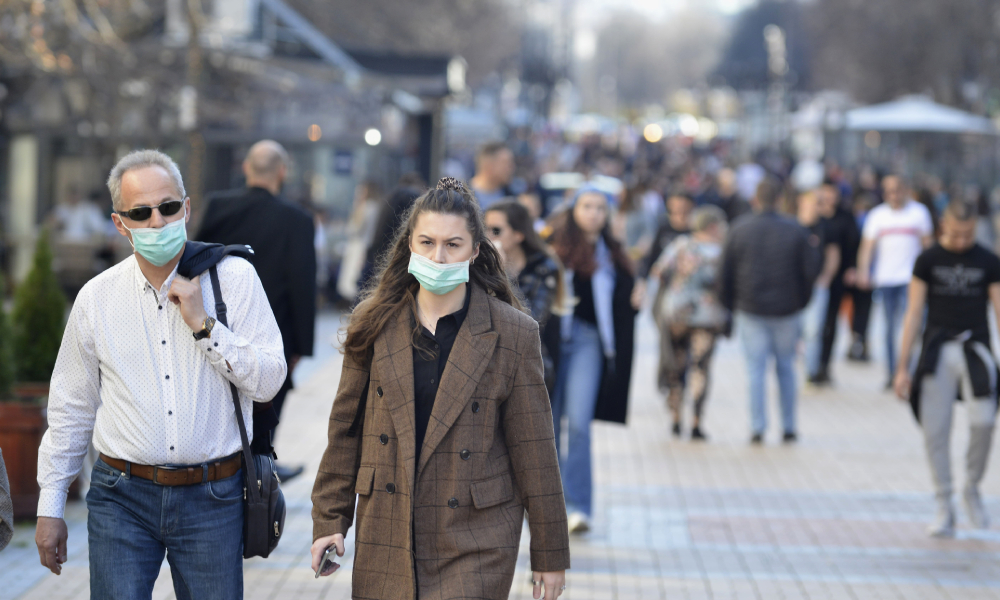
Despite the pandemic, people are still entitled to a certain degree of a standard of care

Sponsored article
Toby Samson already takes issue with the so-called wait time defence — “The fact we’re now at a point where we’re acknowledging our wait times are so long there might be harm caused by them is an issue for the system, but it’s one that I don’t think should become an issue for plaintiffs,” she notes — and she’s concerned that the effects of the COVID-19 pandemic, especially the general deferral of non-urgent medical care, could make it even more problematic.
“Some cases might arise where, yes, I accept COVID has thrown everything off — but people are still entitled to a certain degree of a standard of care,” says Samson, a medical malpractice lawyer with Bogoroch& Associates LLP.
The defence was successfully used in a 2019 case, The Estate of Carlo DeMarco et al. v. Dr. Martin et al, where average wait-times was a defence to causation in a case involving a physician’s failure to refer his patient to a cardiac specialist. The 51-year-old patient died of advanced coronary disease two months after his family doctor, the defendant, saw him and told him he would refer him to the specialist. The defendant admitted his failure to send the referral was a breach of the standard of care but he argued that breach did not cause or contribute to the plaintiff’s death because based on average wait times of 6-8 weeks for a non-urgent stress test, the deceased would not have been diagnosed and treated prior to his death regardless.
They’re essentially saying there was a mistake made but since the patient would have died in any event, it’s “too bad, so sad,” Samson notes, adding she doesn’t think that’s acceptable — “especially in a case like this where the doctor didn’t even do the referral.”
“Does this mean substandard care is excusable as long as our broken system can be the excuse?” she asks.
Samson says when we look at the medical negligence system, there are policy reasons behind it but “the reality is if my client has been injured through negligence, whether because of systemic failures or other reasons” they should still have access to recourse. She appreciates why it’s a matter of law, as it shouldn’t necessarily be the individual who gave that referral who should pay on the other side of it, but asks “is it a systemic issue? Yes. Are there issues with holding an individual physician accountable in that context? Potentially. But at the end of the day my biggest issue with it is why is my client left with no compensation?”
As with all medical negligence cases, it comes down to standard of care and causation. Though things are more under control lately, back in April 2020 when the pandemic was just emerging there was genuine concern about conducting even basic assessments that involved direct contact, like listening to somebody’s lungs when they came into the emergency room. It’s going to be difficult to say what the standards of care were for that period of time, Samson says, and that only builds on the challenge in every medical case where plaintiff lawyers “have to prove but-for the breach of the standard of care what would have happened.”
“Now we’re in a position where we have to recreate what would have happened when things aren’t necessarily normal,” she says.
There’s also going to be the issue of how the standards of care changed over time — for example, how are specialist offices triaging referrals? Following up on them? What systems are they creating to get rid of the significant surgical backlogs caused by the delay of elective surgeries? If a successful defence can be mounted on existing wait times, what will happen as we work our way through the increased backlog that resulted from the pandemic?
The system works on the premise that something is either emergent or elective, and COVID essentially caused all elective procedures to be delayed. But there’s no good word for something that’s not technically an emergency, but really should be done sooner than later. Technically that’s elective, but “elective” doesn’t capture the urgency of it for someone in chronic, debilitating hip pain or suffering from a GI condition “where you can walk around with it but it’s not good for you to have this going on,” Samson says.
“On the other side of COVID as we start trying to get these things back on track, it’s going to take years to purge those lists,” Samson says. "My concern is, are defendants who didn’t even bother to take the steps they needed to take going to be able to keep my client from recovering compensation because of the system failure, or will it be recognized that that ought not to be the case?”
On the causation side, though Samson notes it always depends on the evidence in individual cases, will defendants be able to throw up their hands and just say, “It’s COVID, there was no knowing how this was going to play out, sorry plaintiff ,therefore you can’t win your case?”
“I really hope that if the wait time defence does come up in the context of COVID, it is not accepted as a valid defence without a thorough interrogation.”